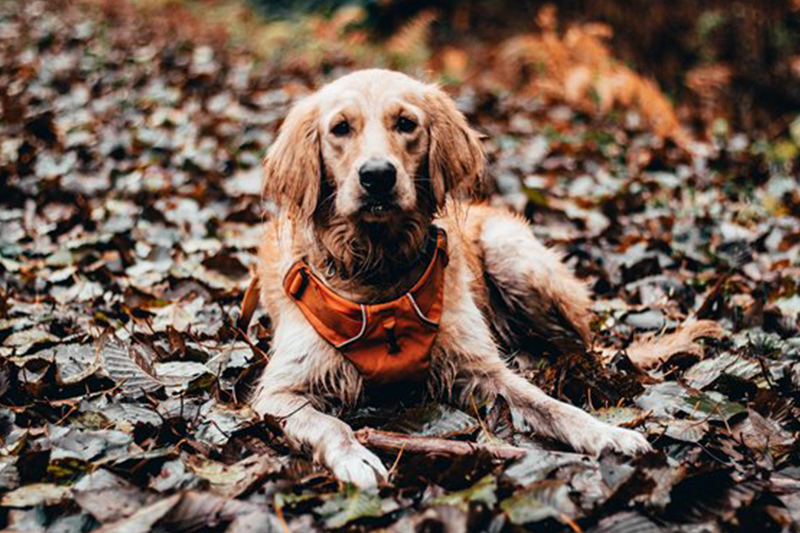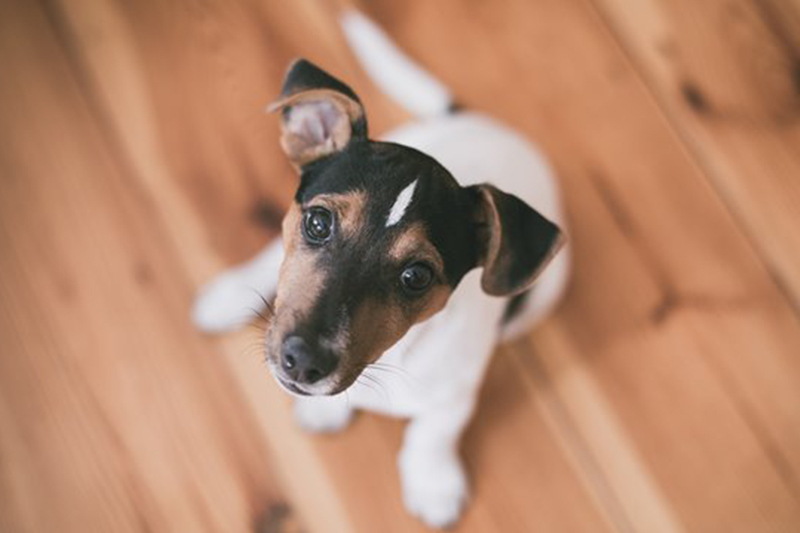Your dog's gut health

Upset to your dog’s gut bacteria may result in upset to your dog
Your dog has trillions of microorganisms living within their gut, known collectively as the microbiota. The microbiota is essential to the normal functioning of your dog’s gastrointestinal tract. It is required for digestion of plant matter (which the body itself cannot break down), production of certain vitamins, protection against harmful bacteria, maintaining a normal gut lining and supporting their immune system. An imbalance to the gut bacteria (known as a dysbiosis) may disrupt these normal functions and result in a poorly pup. There are many factors which may unbalance the microbiota and therefore result in a dysbiosis. See below for the most common causes, and top tips to minimise their risk.
Use of certain medications (especially antibiotics)
While antibiotics, and other pharmaceuticals, may be essential to treat an infection or a condition, oral antibiotics and certain drugs will also kill some of the bacteria living in the gastrointestinal tract, resulting in a dysbiosis.
Top tip – Use antibiotics and medications only as directed by your veterinary surgeon. Consider using probiotics alongside of the antibiotics and for several weeks after the course has ended, to help maintain a normal microbiota. Probiotics should be administered a few hours after the antibiotics so that the live bacteria in the probiotics are not killed by the antibiotics themselves.
Scavenging
If allowed to do so, many dogs will scavenge food that they should not eat. It may be raiding the bin at home or finding old food in the bushes or the park whilst out on a walk. Mould and certain foods can be toxic to dogs, so it is very important to avoid them gaining access to such foods. Other foods may not be toxic, but their ingestion can create a sudden change in food source for the bacteria living in the gut; certain members of the microbiota may favour the new food source which may result in a dysbiosis.
Top tip – Try to minimise the risk of your dog scavenging food which may do them harm. Ensure that bins at home are fully closed, emptied regularly or kept out of reach. Be vigilant for rubbish or food leftovers when out on walks; in busy areas, or after hot weather it may be sensible to keep your dog on a lead if they are a prolific scavenger.

A sudden change of diet
Similar to when dogs scavenge, if we change their diet suddenly, we are rapidly changing the food which the gut bacteria are exposed to. A sudden change does not give time for the microbiota to gradually adapt to the new food source and may favour certain microorganisms over others, resulting in a dysbiosis.
Top tip – If you need to change your dog’s diet, try to do this gradually over a week or so. Keep an eye on your food supplies at home. Try to buy new food before running out of the old bag, so as not to get caught short and have to nip to the nearest shop urgently, which may not stock your dog’s normal food or flavour. See our ‘diet change’ article for further information on changing your pet’s diet.
Stress
There are several different messenger pathways between the gut and the brain (known as the gut-brain axis) which mean that stressful situations may cause a dysbiosis. Examples of possible stressors are going into kennels, travelling, visiting the vets, going to dog shows or hearing fireworks etc.
Top tip – Ideally you want to try and minimise the stress that your dog is exposed to. Try to introduce them to new situations gradually. E.g. take them to visit the kennels, then to stay for one night, before leaving them for a full week.
Life stage
Certain life stages such as weaning and old age are often associated with changes in the microbiota or a dysbiosis. While gut physiology does change a little with age, these may also be associated with the diet changes that occur around these times.
Top tip – as before, if changing diet, e.g. at weaning, then try to do this gradually so that the microbiota has time to adjust.
Underlying gut problems
An underlying gastrointestinal issue may change the environment in the intestines due to alterations in motility, secretions or the gut wall itself. All of these changes may favour certain microorganisms over others, which may result in a dysbiosis.
Top tip – If you think that your dog is unwell, or may have a gastrointestinal problem, get them checked out by your vet as soon as possible, to minimise the changes that occur within the gut and subsequently to the microbiota.
Interested in finding out more about your pet's gut health?
- Read about Fibre and your pet's gut health
- Read about Poop Points: Check your dog or cat's poo
- Read more about Your cat's gut health
News

